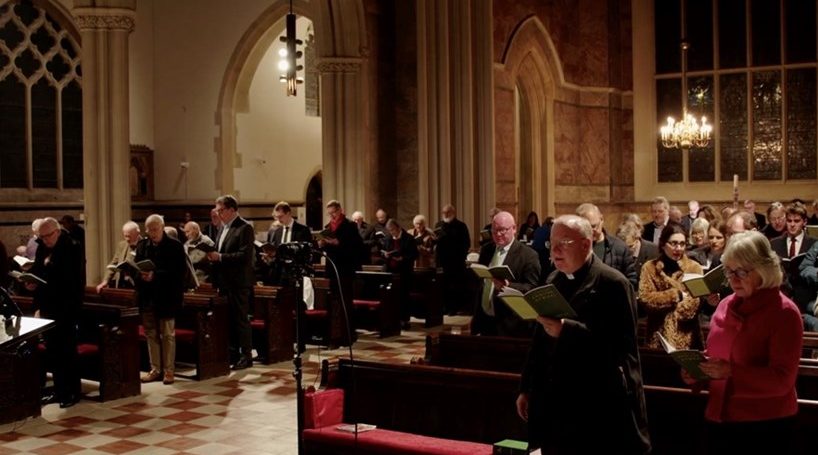Latest "English Hymnal" descendant christened in London
International
It wasn’t a thousand voices shouting to the saints, as one of the hymns in the sample booklet put it; but about 80 people gathered in St James’s, Sussex Gardens, in London recently to put a fair wind behind the latest revision of the famous green-bound hymn book whose first music editor, in 1906, was the composer Ralph Vaughan Williams, then only 33 years old

It wasn’t a thousand voices shouting to the saints, as one of the hymns in the sample booklet put it; but about 80 people gathered in St James’s, Sussex Gardens, in London, on Wednesday evening last week, to put a fair wind behind the latest revision of the famous green-bound hymn book whose first music editor, in 1906, was the composer Ralph Vaughan Williams, then only 33 years old.
The first edition, The English Hymnal, was “offered as a humble companion to the Book of Common Prayer”, and swept away some Victorian tunes as “a moral rather than a musical issue” — though Vaughan Williams did confess in his preface that the withholding of copyright permissions had played its part. They made room for many examples of folk and plainsong tunes, which helped to give the book its character.
Advertisement
Some further work was done on it in 1933, under Oxford University Press; and it was followed up in 1986 by The New English Hymnal, published by Canterbury Press, when Victorian composers emerged from their doghouse to offer companionship to the Alternative Service Book 1980 — although the preface of the new hymn book declares that The Revised English Hymnal, “like its predecessors, is a companion to the liturgies not only of the church of England but of other churches of the Anglican Communion, especially those, such as Scotland and Wales, which do not produce hymnals of their own”.
The book is the work of seven editors, with input from Tim Ruffer at the Royal School of Church Music; and it has taken ten years, including interruptions and delays, says the Revd Martin Draper, from the editorial committee, who spoke at last week’s launch. As well as the main section of hymns, there is an expanded liturgical section from nos. 636 to 688: no. 688 is an order for eucharistic devotions.
Advertisement
The preface thanks the former Archbishop of Canterbury Lord Williams for writing a foreword, and for his translations of two Welsh hymn texts by William Williams of Pantycelyn (1717-91), as “All my need is met in Jesus” and “As I am, O Lord, receive me”. “The good hymn is never just the familiar hymn or the one that prompts familiar and comfortable reactions — and so . . . no hymn collection is ever the last word,” the former Archbishop writes. But this may be the last word for now.
Read more on this story in Angela Tilby’s column.
First published in Church Times on 3 December 2023. Visit the Church Times website to subscribe today.





